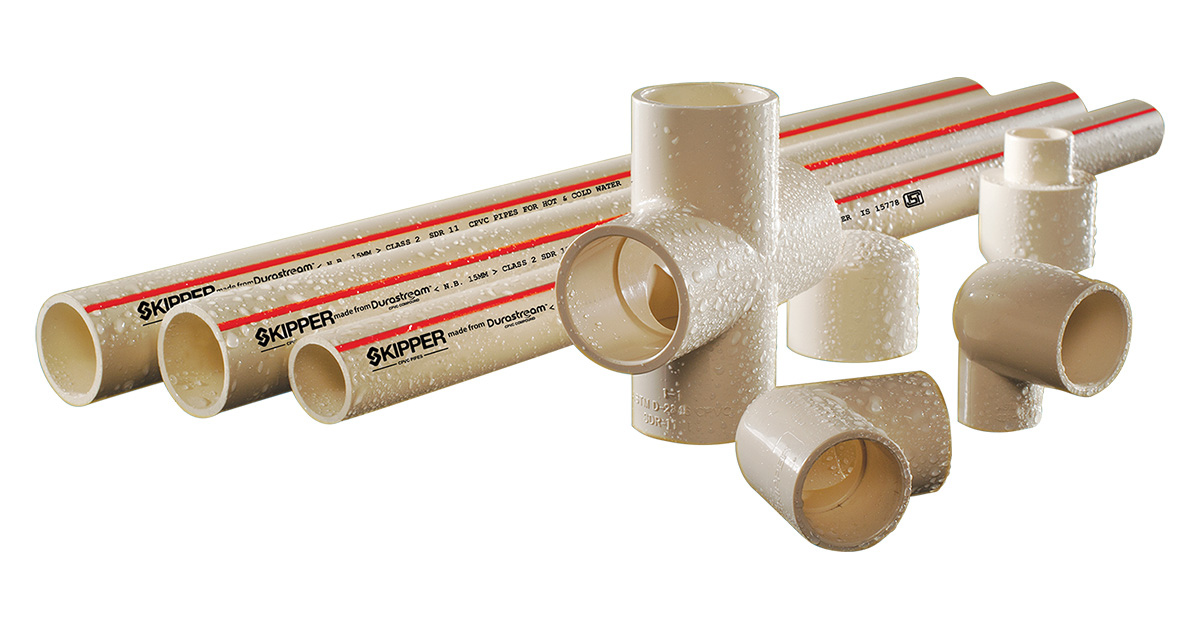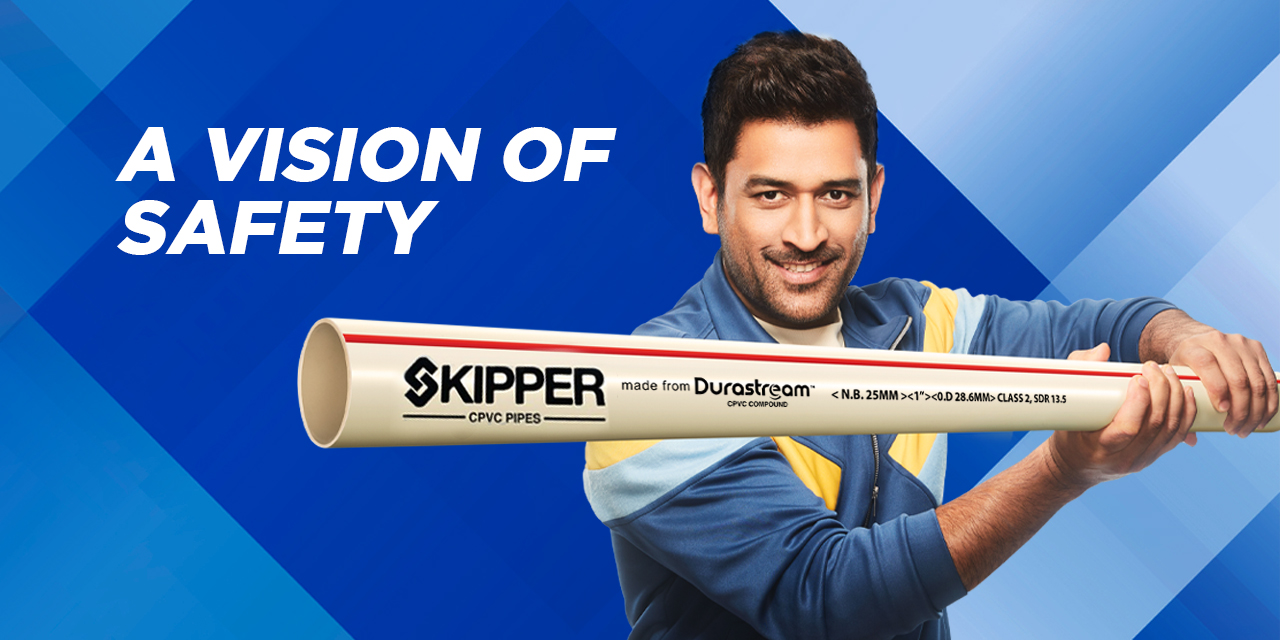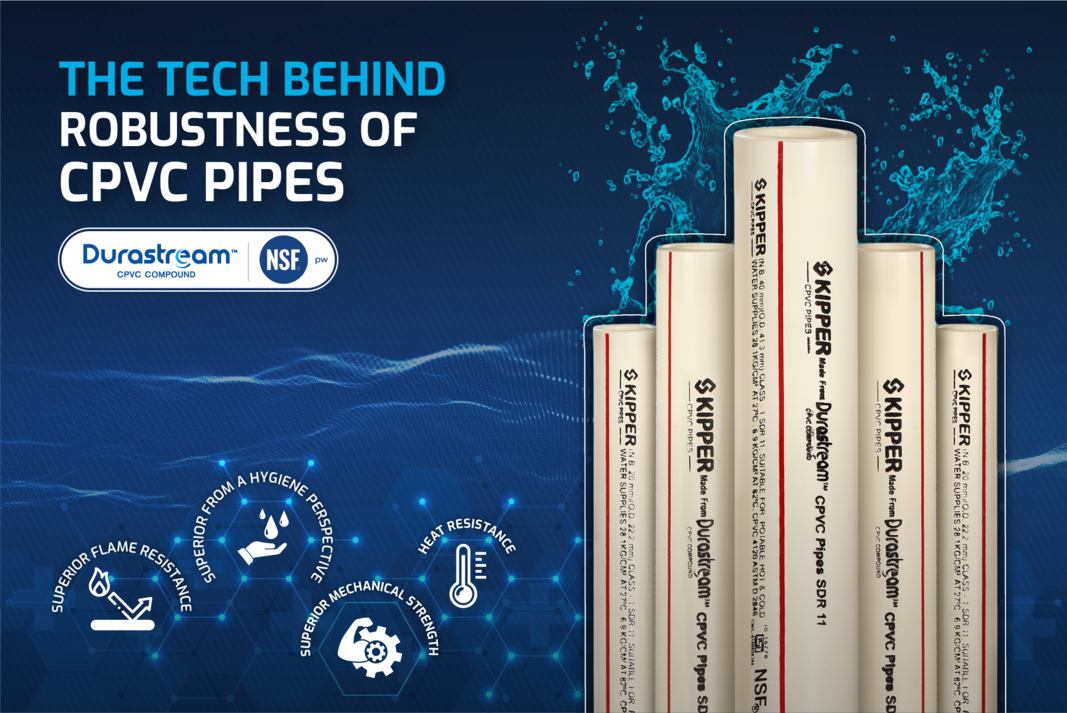Known for their superior strength, performance, and safety, CPVC pipes are used widely for residential and industrial water projects. Earlier, metal pipes were relied upon for water projects. However, CPVC pipes have outperformed metal pipes in terms of durability, safety, installation, and cost. As one of the leading CPVC suppliers, experts at Skipper Limited share with you FAQs on CPVC pipes and their answers:
Are CPVC pipes same as PVC pipes?
Both CPVC and PVC pipes widely used for water projects. The two are known for tensile strength, flexibility, and durability. The main difference between CPVC and PVC is the range of temperatures each is capable of withstanding. CPVC pipes can handle temperatures up to 200° Fahrenheit, while PVC peaks at 140° Fahrenheit. This difference is due to the different chemical compositions of the two.
What is the expected lifespan of CPVC pipes?
CPVC pipes are known for their exceptional reliability. When installed properly, CPVC pipes can last for decades. The estimated lifespan of CPVC pipes is 50 years.
How is CPVC more reliable than other materials?
Corrosion is a common and ongoing problem in plumbing. CPVC pipes and fittings are resistant to internal and external corrosion. This nearly eliminates the risk of leakage and cracks, making them more durable than metal pipes.
Are CPVC pipes high maintenance?
Once installed properly, the CPVC piping system requires little or no maintenance. As CPVC can withstand high temperatures and extreme weather conditions, they remain unaffected. While metal pipes develop cracks and leaks which require repairs and maintenance, there is no such need as far as CPVC pipes are concerned. Moreover, if there is a repair required, it can be made without a welder or lifting device as CPVC pipes can be cut easily with a pipe cutter that are lightweight.
Are CPVC pipes easy to install?
Not only is CPVC safer than metal to install, but it is also often safer to operate. CPVC pipes have lower thermal conductivity. This means the surface temperature of the pipe is lower. This reduces the chance of burns to maintenance personnel.
Are there any health risks of using CPVC pipes for potable water or drinking water?
Unlike metal pipes, CPVC pipes neither react to mineral acids, bases, salts, and aliphatic hydrocarbons nor do it scale. This makes CPVC ideal for transporting safe and clean water. CPVC pipes are formulated to stand up to many of the same aggressive chemicals that corrode metal pipes, compromising the quality of water. Moreover, CPVC pipes are resistant to chlorine disinfectants that are often used to keep water uncontaminated.
Are CPVC pipes expensive?
CPVC pipes are cost-effective in the long-term if you take into account the low installation and maintenance charges. Given that CPVC last for decades, they are quite cost-effective.
Are all CPVC pies the same?
While all CPVC pipes and fittings share a common chemical composition, there are differences between generic CPVC and CPVC pipes that we manufacture. Our CPVC pipes and fittings are lead-free, corrosion-resistant, and can withstand any hazardous condition and tension. Our CPVC pipes are easy to install and are ideal for supplying drinking water.




0 Comments